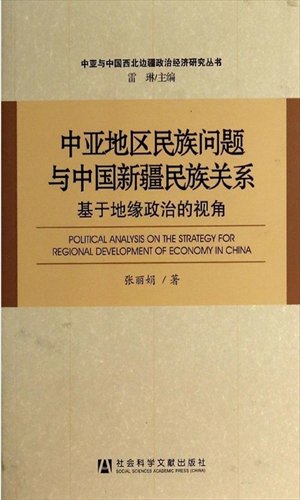HOME >> OP-ED
Central Asia exerts strong pull on Xinjiang culture and politics
Source:Global Times Published: 2014-3-20 18:53:01

Zhang Lijuan, Ethnic Issues in Central Asia and Ethnic Relations in China's Xinjiang, Social Sciences Academic Press, February 2014
Central Asia and China's Xinjiang Uyghur Autonomous Region have much in common culturally, geographically, and ethnically. But few scholars have provided a comprehensive overview of these connections.One book that does so is Ethnic Issues in Central Asia and Ethnic Relations in China's Xinjiang, written by Zhang Lijuan, a scholar from Xinjiang Normal University based in Urumqi.
It focuses on the origin, development and the manifestation of ethnic issues in Central Asia and its effects on Xinjiang against the backdrop of the general geopolitical environment.
The book analyzes the geographical ties, historical origins and the homologous transnational nationalities between five Central Asian countries and China's Xinjiang in different historical periods from a geopolitical perspective.
Tsarist colonialism in Central Asia had negative impact on Xinjiang in history. During the Soviet period, although the author argues that comprehensive development had been achieved in fields of politics, economics and culture in Central Asia, some blunders in Soviet policies undermined the ethnic relations within the region. China was in the Republican period during the early days of the Soviet Union. Xinjiang, which was "lonely beyond the Great Wall" at that time, received large numbers of refugees from then Soviet Central Asia, and was directly influenced by thoughts of "national self-determination," "pan-Islamism" and "pan-Turkism."
Even after the collapse of the Soviet Union, the complex ethnic composition, different religious beliefs and the long existing complicated ethnic relations were still ahead of the then newly established five independent Central Asian countries, which also had effects on the social stability and economic development of Xinjiang. And China's sovereignty over Xinjiang was seriously undermined by nationalism in Central Asia. Thoughts of "pan-Islamism" and "pan-Turkism" resurrected separatist forces in Xinjiang's vain hopes.
After the September 11 attacks, Central Asia has played an increasingly important role in global geopolitics, while interference in this region from the West has also increased. Xinjiang's development in this period has also been closely related to these new developments in Central Asia.
Summarizing the development process of the relationship between Central Asia and China's Xinjiang in different periods, two conclusions are drawn by the author.
First, ethnic issues in Xinjiang are closely related to Central Asia. Second, ethnic interests are the deep-rooted reason for ethnic conflicts.
The first conclusion requires China to actively deal with the influence from Central Asia and strengthen and deepen its relationship with the five countries. Central Asia should receive more attention in China's policies, which are closely related to the dynamics in Xinjiang.
The second shows that external causes can become operative through internal causes.
Hence, against the backdrop that ethnic problems related to Xinjiang have already become quite a serious problem in China, a two-pronged approach is necessary and vital for both China's Xinjiang and Central Asia.
Posted in: Fresh off the Shelf, Viewpoint